Texto íntegro y original de la crítica que escribió Bosley Crowther del New York Times el 1 de octubre de 1948:
The Screen in Review; ' Red River,' Horse Opera With Montgomery Clift and John Wayne, Opens at Capitol
By BOSLEY CROWTHER
Published: October 1, 1948
Up to a point in "Red River," which came to the Capitol yesterday, this opus is on the way towards being one of the best cow-boy pictures ever made. And even despite a big let-down, which fortunately comes near the end, it stands sixteen hands above the level of routine horse opera these days. So strap on your trusty six-shooters and race to the wind-swept Capitol, you lovers of good old Western fiction. It's round-up and brandin' time!
From the moment this Howard Hawks' super-special fades in on the open Western plains and picks up a wagon-train of settlers heading out towards the perilous frontier, it's plain that you're in for a picture with the genuine tang of the outdoors. For the beauty and scope of that first look is an unmistakable tip that Mr. Hawks has used real Western scenery for its most vivid and picturesque effects. And from the moment (right at the beginning) that John Wayne and Walter Brennan cut away from the train and strike off for their own realms, you know that you're riding with stout men.
That's the big thing about this picture: for at least two-thirds of the way, it's a down-to-earth story of cow-pokes and the tough, dangerous lives they used to lead. It's the story of a great migration of a cattle herd, said to be the first, from the breeding grounds in Texas to Kansas, along the Chisholm Trail. And it's the story of a desperate contention between two strong-minded men, a hard-bitten veteran and a youngster—or Mr. Wayne and Montgomery Clift.
So long as it sticks to cow-herding and the gathering clash between these two—a clash brought on by disagreement as to whether they should try the untrod trail—it rings with the clang of honest metal and throbs with the pulse of real life. For Mr. Hawks has filled it with credible substance and detail, with action and understanding, humor and masculine ranginess. He has made it look raw and dusty, made it smell of beef and sweat—-and he has got a stampede of cattle in it that makes you curl up with terror in your seat.
He has also got several fine performances out of a solidly masculine cast, topped off by a withering job of acting a boss-wrangler done by Mr. Wayne. This consistently able portrayer of two-fisted, two-gunned outdoor men surpasses himself in this picture. We wouldn't want to tangle with him. Mr. Clift has our admiration as the lean and leathery kid who does undertake that assignment, and he carries it off splendidly. As other rawhided cowhands, Mr. Brennan, John Ireland and Paul Fix gabble and gripe and act like cowpokes in a thoroughly entertaining way.
They do, that is, up to the sad point when the cattlemen meet a wagon-train which is being besieged by Indians and help beat the redskins off. Then the cowboys—and the picture—run smack into "Hollywood" in the form of a glamorized female, played by Joanne Dru. For she is the typical charmer, with a voice like Dorothy McGuire's, and the havoc she plays with the hero—and with the contents—is almost complete. The characters turn into actors and the story turns into old stuff. It ends with the two tenacious cowboys kissing and making up.
On the stage at the Capitol are Tony and Sally DeMarco, Buck Bubbles, Bobby May, Rose Marie and Nat Brandwynne and his orchestra.
Ver extracto de lo que dice de Montgomery Clift.
Ver web.
The Screen in Review; ' Red River,' Horse Opera With Montgomery Clift and John Wayne, Opens at Capitol
By BOSLEY CROWTHER
Published: October 1, 1948
Up to a point in "Red River," which came to the Capitol yesterday, this opus is on the way towards being one of the best cow-boy pictures ever made. And even despite a big let-down, which fortunately comes near the end, it stands sixteen hands above the level of routine horse opera these days. So strap on your trusty six-shooters and race to the wind-swept Capitol, you lovers of good old Western fiction. It's round-up and brandin' time!
From the moment this Howard Hawks' super-special fades in on the open Western plains and picks up a wagon-train of settlers heading out towards the perilous frontier, it's plain that you're in for a picture with the genuine tang of the outdoors. For the beauty and scope of that first look is an unmistakable tip that Mr. Hawks has used real Western scenery for its most vivid and picturesque effects. And from the moment (right at the beginning) that John Wayne and Walter Brennan cut away from the train and strike off for their own realms, you know that you're riding with stout men.
That's the big thing about this picture: for at least two-thirds of the way, it's a down-to-earth story of cow-pokes and the tough, dangerous lives they used to lead. It's the story of a great migration of a cattle herd, said to be the first, from the breeding grounds in Texas to Kansas, along the Chisholm Trail. And it's the story of a desperate contention between two strong-minded men, a hard-bitten veteran and a youngster—or Mr. Wayne and Montgomery Clift.
So long as it sticks to cow-herding and the gathering clash between these two—a clash brought on by disagreement as to whether they should try the untrod trail—it rings with the clang of honest metal and throbs with the pulse of real life. For Mr. Hawks has filled it with credible substance and detail, with action and understanding, humor and masculine ranginess. He has made it look raw and dusty, made it smell of beef and sweat—-and he has got a stampede of cattle in it that makes you curl up with terror in your seat.
He has also got several fine performances out of a solidly masculine cast, topped off by a withering job of acting a boss-wrangler done by Mr. Wayne. This consistently able portrayer of two-fisted, two-gunned outdoor men surpasses himself in this picture. We wouldn't want to tangle with him. Mr. Clift has our admiration as the lean and leathery kid who does undertake that assignment, and he carries it off splendidly. As other rawhided cowhands, Mr. Brennan, John Ireland and Paul Fix gabble and gripe and act like cowpokes in a thoroughly entertaining way.
They do, that is, up to the sad point when the cattlemen meet a wagon-train which is being besieged by Indians and help beat the redskins off. Then the cowboys—and the picture—run smack into "Hollywood" in the form of a glamorized female, played by Joanne Dru. For she is the typical charmer, with a voice like Dorothy McGuire's, and the havoc she plays with the hero—and with the contents—is almost complete. The characters turn into actors and the story turns into old stuff. It ends with the two tenacious cowboys kissing and making up.
On the stage at the Capitol are Tony and Sally DeMarco, Buck Bubbles, Bobby May, Rose Marie and Nat Brandwynne and his orchestra.
Ver extracto de lo que dice de Montgomery Clift.
Ver web.
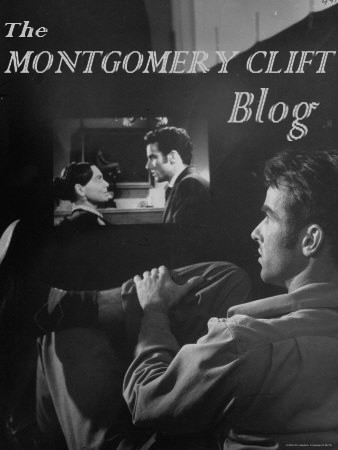



.-+albornoz+(4)+BLOG.jpg)
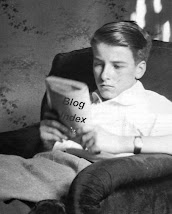
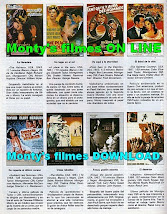


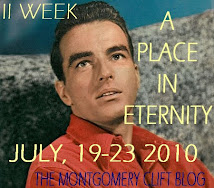











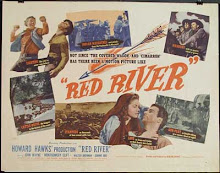
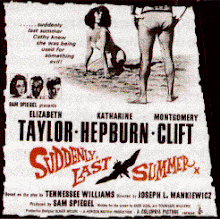



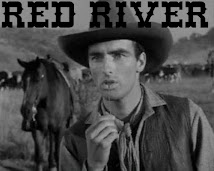
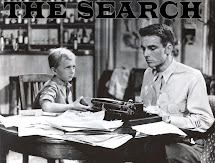

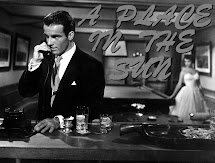2.jpg)
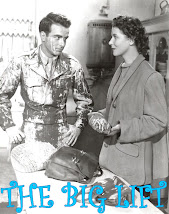.jpg)
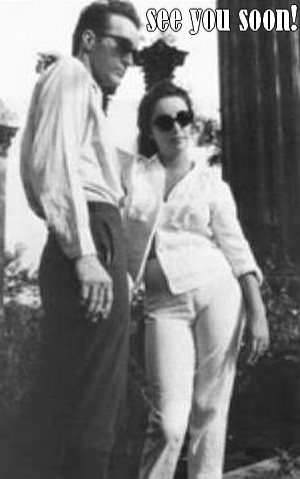

.jpg)


No hay comentarios:
Publicar un comentario